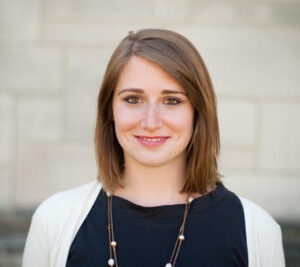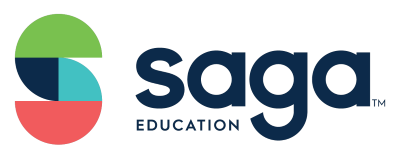Fellow Spotlight: Karlyn Gorski
February 11, 2019Karlyn served as a Fellow at Harlan Community Academy in Chicago, IL during the 2014-2015 school year. Karlyn’s life after her service year has been rather unique! Read on to learn how she has ultimately arrived at being awarded one of the University of Chicago‘s prestigious Institute of Education Sciences Fellowships towards obtaining her Ph.D.

How did you arrive at being a tutoring Fellow?
My undergraduate thesis advisor at the University of Chicago was extremely influential, and his classes, specifically on race and gender, made me interested in education. I started taking interest in the public school system and that’s what brought me to take interest in opportunities to serve through education right here in the city. I’d spent a lot of time thinking about how to make policy better in an effort to make the country better. Tutoring gave me the opportunity to do the groundwork in school settings that I felt was necessary to do before I could work to influence and make policy changes.
I’d love to hear more about your journey after your service year. How did you transition into teaching abroad, and then pursuing your Ph.D. thereafter?
After my service year, I reflected on my time studying abroad in India and decided to return to teach English at the school I once volunteered at. While I was back in India, I decided that I’d need my Ph.D. so that I could do my own research and run effective programs such as Saga one day. I prepared to take the GRE and I’m so lucky I had the Algebra 2 tutoring experience from my year as a Fellow; I didn’t have to study the math portion at all! It went well, so I pulled my materials together and went from there.
How did you grow personally and professionally during your service year?
I got a thorough understanding of what our students face in real time – whether it’s how they view school, how they express themselves, how they build relationships with their teachers or issues they face in their community. Working in a school as a Fellow was a much more real and clearly different experience from studying. Talking to my students every day connected me personally to issues that I wanted to help support. Now I try to carry this over into my professional research. One of my biggest missions now is to tell personal stories. Quantitative data is so important, but I’ve also become a much more qualitative researcher, as it often changes minds more than numbers do.
What has most inspired you to continue the fight to end educational inequity?
I have a lot of answers to this question, but my biggest single inspiration is the fact that children are getting cheated out of the education they’ve been promised. It strikes me as profoundly wrong and immoral. We know that there are changes we need to make, starting in kindergarten, but what about older students? Interventions like Saga prove that it’s not too late to make a difference in teenagers’ lives. Our kids deserve an end-to-end high-quality education. I wake up every day to fight to make that a reality!
